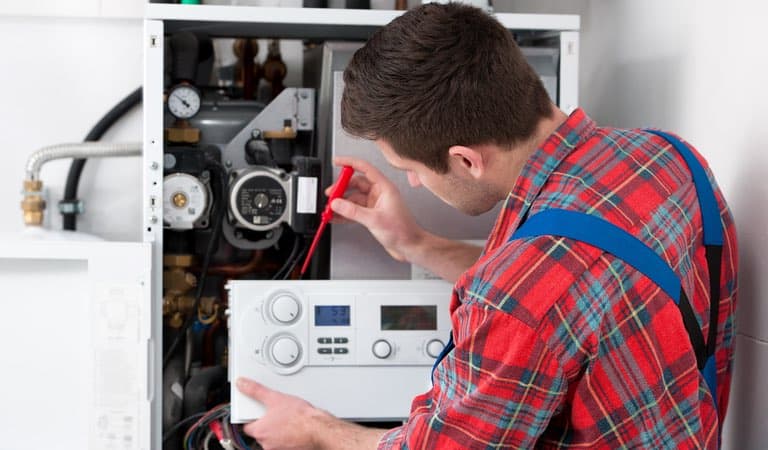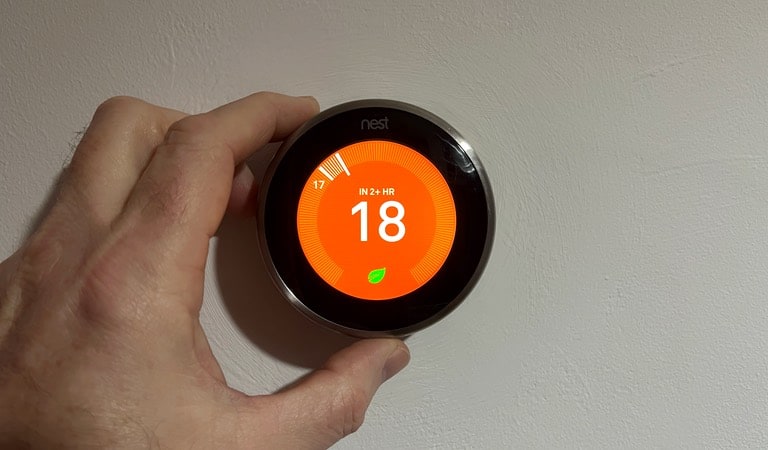Landlords are responsible for providing their tenants with a safe, habitable place to live. So what needs to happen when the heating stops working, and how long can a landlord leave a tenant without heating?
Tenants’ should not be left without heating for more than 24 hours. Faults with the central heating system, or other heating sources, should be reported to the landlord or letting agent immediately and they should be fixed as a matter of urgency.
A broken boiler or heating system needs to be fixed as soon as possible and will require good communication between the tenant and landlord. A landlord cannot be expected to fix something if they are not made aware that there is a problem in the first place.
This sounds obvious, but you will be surprised how many tenants do not inform the landlord or letting agents of any problems with their heating system, because they think that they are already aware.
As most landlords don’t have the capability to fix broken boilers or other heating systems, they will be relying on a plumber or heating engineer to fix the problem. With that in mind, it is crucial that the landlord informs the tenant that they have taken the necessary steps to get the heating fixed.
The landlord will also need to confirm with the tenant that they will be home when the plumber or heating engineer is due to arrive. If not, alternative arrangements will need to be made to prevent any unnecessary delays to the repairs.
Broken or faulty boilers cannot always be fixed when they are first inspected. It’s quite likely that parts will need to be ordered which could take a day or two to arrive.

Providing the landlord is taking the necessary steps to get the heating system fixed as quickly as possible, they will be fulfilling their obligations to the tenant.
If parts are needed which will take a day or two to arrive, and the weather is cold, landlords should assist the tenant with sourcing alternative heating. Electrical fan heaters are a good alternative, as they are relatively cheap to buy and easy to install.
There are a couple of things a landlord should consider when it comes to the maintenance of their central heating system:
- Consider how old the gas boiler is and whether repairs are becoming more frequent. Planning to have a boiler replaced in the spring or summer time will cause the least amount of disruption for your tenants when the cold weather is likely to be less extreme.
- Consider taking insurance to protect your boiler and heating system. There are a number of companies that provide cover for landlords with emergency call-outs at a relatively cheap monthly cost. This will give you the peice of mind when the unexpected happens.
PlusHeat is a company that I am happy to recommend to my family and friends. They have various plans that you can consider, with the option to include cover for the electrics, roofing, drainage and more!
Is It Illegal To Have No Heating In A Rented Property?
It is illegal for an occupied rental property to not have any heating. Tenants are entitled to a central heating system that is functional and with an adjustable thermostat. Each occupied room in the property requires a radiator or alternative heat source.
A lack of heating and hot water is considered a hazard for tenants who are occupying a rental property. The landlord is responsible for ensuring that the heating is working properly and that the tenant has access to hot water at all times.
It is not illegal for a vacant rental property to not have heating.
Of course, property investors and landlords who are carrying out extensive renovation works to their property, are not required to ensure that heating is available at all times. Similarly, people who are selling a vacant home do not have to provide or install a functional heating system.
Other Considerations For Landlords Regarding Heating
Under Section 11 of the Landlord and Tenant Act 1985 landlords are expected to carry out general repairs ‘in reasonable time’, and within 24 hours in the event of emergency repairs such as no heating or hot water.
Landlords need to be aware that if the temperature falls below -1°C outside, the minimum heating standard required inside the property needs to be at least 18°C in bedrooms and 21°C in living or communal rooms. With that said, what if the radiators need bleeding, who is responsible?

Tenants should be responsible for ensuring that the property maintains a minimum temperature of 12°C – 15°C in order to prevent the pipes from freezing and bursting. It is worth making sure that this information is detailed in a clause within the tenancy agreement for the landlords protection.
There are also a number of legal and practical issues for landlords to be aware of when it comes to the heating and the maintenance of a rental property:
- You must provide the tenant with a gas safety certificate before the tenancy starts.
- You must carry out an annual gas safety check each year.
- You must keep the central heating system in good condition and provide the tenants with instructions on how to switch it on and turn it off.
- All gas and electrical appliances must be safe for use and properly maintained. It is the landlord’s responsibility to ensure that any appliance are working safely.
As a landlord, you have a legal responsibility to ensure that your tenants are safe and that their home is habitable. You also need to ensure that your property is well maintained and in a good state of repair at all times. This, of course, includes having a fully functioning heating system.
You don’t want your tenants taking legal action or contacting your local council regarding the inadequate standard of heating in your rental property.
I hope that this article has been helpful and informative. Landlords should remember that they need to provide a good customer service to their tenants, and that this includes ensuring that the heating is working properly.
If there are any faults with the heating system, these should be reported to the landlord or letting agent immediately so that they can be fixed as a matter of urgency.

